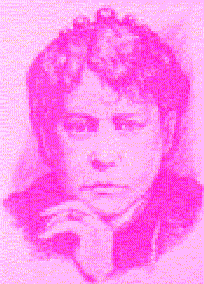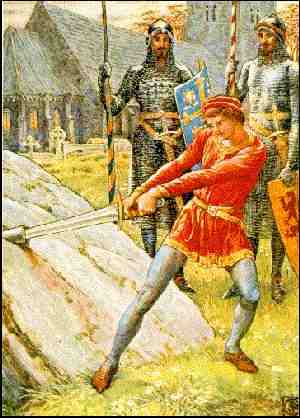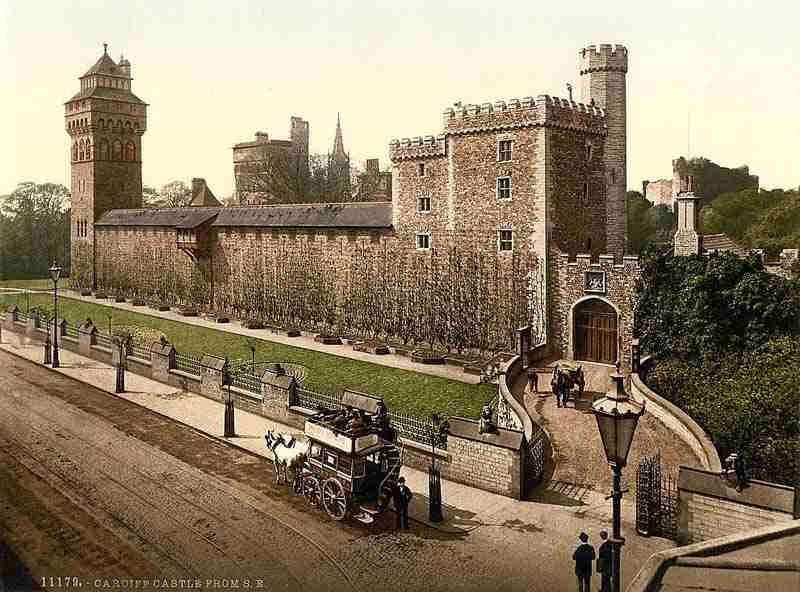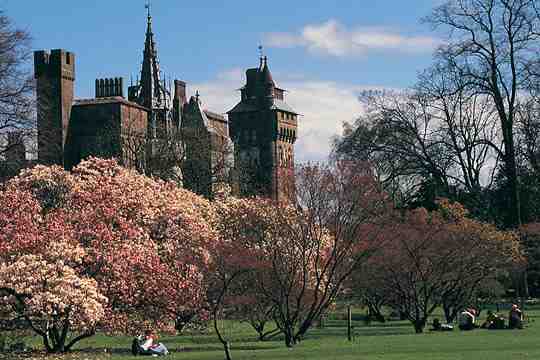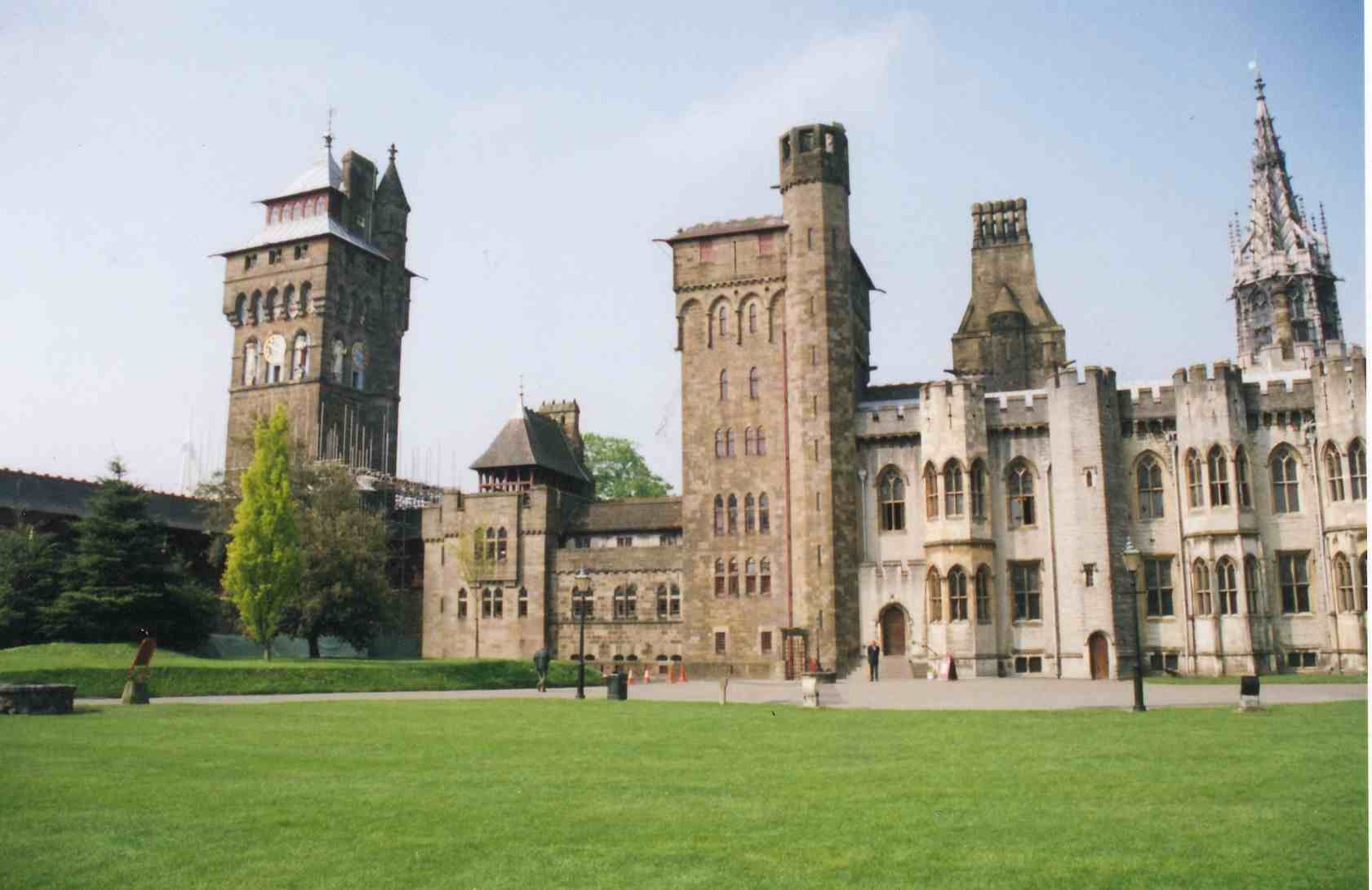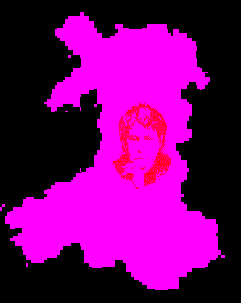
The All
Getting Started in
Theosophy
(And it’s all Free Stuff )
But you don’t have to live in Wales
to find this guide useful
Helena Petrovna Blavatsky
1831 – 1891
____________________
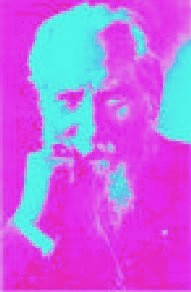
The Result of Theosophical Study
From
A Textbook of Theosophy
By
C
“Members of the Theosophical Society study
these truths and Theosophists endeavor to live them”. What manner of men then
is the true Theosophist in consequence of his knowledge? What is the result in
his daily life of all this study?
Finding
that there is a Supreme Power who is directing the course of evolution, and
that He is all-wise and all-loving, the Theosophist sees that everything which
exists within this scheme must be intended to further its progress. He realizes
that the scripture which tells us that all things are working together for
good, is not indulging in a flight of poetic fancy or voicing a pious hope, but
stating a scientific fact. The final attainment of unspeakable glory is an
absolute certainty for every son of man, whatever may be his present condition;
but that is by no means all. Here and at this present moment he is on his way
toward the glory; and all the circumstances surrounding him are intended to
help and not to hinder him, if only they are rightly understood. It is sadly
true that in the world there is much of evil and of sorrow and of suffering;
yet from the higher point of view the Theosophist sees that, terrible though
this be, it is only temporary and superficial, and is all being utilized as a
factor in the progress.
When in
the days of his ignorance he looked at it from its own level it was almost
impossible to see this; while he looked from beneath at the under side of life,
with his eyes fixed all the time upon some apparent evil, he could never gain a
true grasp of its meaning. Now he raises himself above it to the higher levels
of thought and consciousness, and looks down upon it with the eye of the spirit
and understands it in its entirety, so he can see that in very truth all is
well – not that all will be well at some remote period, but that even now at
this moment, in the midst of incessant striving and apparent evil, the mighty
current of evolution is still flowing, and so all is well because all is moving
on in perfect order toward the final goal.
Raising
his consciousness thus above the storm and stress of worldly life, he
recognizes what used to seem to be evil, and notes how it is apparently
pressing backwards against the great stream of progress; but he also sees that
the onward sweep of the divine law of evolution bears the same relation to this
superficial evil as does the tremendous torrent of Niagara to the fleckings of
foam upon its surface. So while he sympathizes deeply with all who suffer, he
yet realizes what will be the end of that suffering, and so for him despair or
hopelessness is impossible. He applies this consideration to his own sorrows
and troubles, as
well as to
those of the world, and therefore one great result of his Theosophy is a
perfect serenity – even more than that, a perpetual cheerfulness and joy.
For him
there is an utter absence of worry, because in truth there is nothing left to
worry about, since he knows that all must be well. His higher Science makes him
a confirmed optimist, for it shows him that whatever of evil there may be in
any person or in any movement, it is of necessity temporary, because it is
opposed to the resistless stream of evolution; whereas whatever is good in any
person or in any movement must necessarily be persistent and useful, because it
has behind it the omnipotence of that current, and therefore it must abide and
it must prevail.
Yet it
must not for a moment be supposed that because he is so fully assured of the
final triumph of good he remains careless or unmoved by the evils which exist
in the world around him. He knows that it is his duty to combat these to the
utmost of his power, because in doing this he is working upon the side of the
great evolutionary force, and is bringing nearer the time of its ultimate
victory. None will be more active than he in labouring for the good, even
though he is absolutely free from the feeling of helplessness and hopelessness
which so
often
oppresses those who are striving to help their fellowmen.
Another
most valuable result of his theosophical study is the absence of fear. Many
people are constantly anxious or worried about something or other; they are
fearing lest this or that should happen to them, lest this or that combination
may fail, and so all the while they are in a condition of unrest; and most
serious of all for many is the fear of death. For the Theosophist the whole of
this feeling is entirely swept away. He realizes that great truth of
reincarnation. He knows that he has often before laid aside physical bodies,
and so he sees that death is no more than sleep – that just as sleep comes in
between our days of work and gives us rest and refreshment, so between these
days of labor here on earth, which we call lives, there comes a long night of
astral and heavenly life to give us rest and refreshment and to help us on our
way.
To the
Theosophist death is simply the laying aside for a time of this robe of flesh.
He knows that it is his duty to preserve the bodily vesture as long as
possible, and gain through it all the experience he can; but when the time
comes for him to lay it down he will do so thankfully, because he knows that
the next stage will be a much pleasanter one than this.
Thus he
will have no fear of death, although he realizes that he must live his life to
the appointed end, because he is here for the purpose of progress, and that
progress is the one truly momentous matter. His whole conception of life is
different; the object is not to earn so much money, not to obtain such and such
a position; the one important thing is to carry out the Divine Plan. He knows
that for this he is here, and that everything else must give way to it.
Utterly
free also is he from any religious fears or worries or troubles. All such
things are swept aside for him, because he sees clearly that progress toward
the highest is the Divine Will for us, that we cannot escape from that
progress, and that whatever comes in our way and whatever happens to us is
meant to help us along that line; that we ourselves are absolutely the only
people who can delay our advance. No longer does he trouble and fear about
himself. He simply goes on and does the duty which comes nearest in the best
way that he can, confident that if he does this all will be well for him
without his perpetual worrying. He is satisfied quietly to do his work and to
try to help his fellows in the race, knowing that the great divine Power behind
will press him onward slowly and steadily, and do for him all that can be done,
so long as his face is set steadfastly in the right direction, so long as he
does all he reasonably can.
Since he
knows that we are all part of one great evolution and all literally the
children of one father, he sees that the universal brotherhood of humanity is
no mere poetical conception, but a definite fact; not a dream of something
which is to be in the dim distance of Utopia, but a condition existing here and
now.
The
certainty of this all-embracing fraternity gives him a wider outlook upon life
and a broad impersonal point of view from which to regard everything. He
realizes that the true interests of all are in fact identical, and that no man
can ever make real gain for himself at the cost of loss or suffering to some
one else. This is not to him an article of religious belief, but a scientific
fact proved to him by his study. He sees that since humanity is literally a
whole, nothing which injures one man can ever be really for the good of any
other, for the harm done influences not only the doer but also those who are
about him.
He knows
that the only true advantage for him is that benefit which he shares with all. He
sees that any advance which he is able to make in the way of spiritual progress
or development is something secured not for himself alone but for others. If he
gains knowledge or self-control, he assuredly acquires much for himself, yet he
takes nothing away from any one else, but on the contrary he helps and
strengthen others. Cognizant as he is of the absolute spiritual unity of
humanity, he knows that, even in this lower world, no true profit can be made
by one man which is not made in the name of and for the sake of humanity; that
one man’s progress must be a lifting of the burden of all others; that one
man’s advance in spiritual things means a very slight yet not imperceptible
advance to humanity as a whole; that every one who bears suffering and sorrow
nobly in his struggle toward the light is lifting a little of the heavy load of
the sorrow and suffering of his brothers as well.
Because he
recognizes this brotherhood not merely as a hope cherished by despairing men,
but as a definite fact following in scientific series from all other facts;
because he sees this as an absolute certainty, his attitude towards all those
around him changes radically. It becomes a posture ever of helpfulness, ever of
the deepest sympathy, for he sees that nothing which clashes with their higher
interests can be the right thing for him to do, or can be good for him in any
way.
It
naturally follows that he becomes filled with the widest possible tolerance and
charity. He cannot but be always tolerant, because his philosophy shows him
that it matters little what man believes, so long as he is a good man and true.
Charitable also he must be, because his wider knowledge enables him to make
allowances for many things which the ordinary man does not understand.
The
standard of the Theosophist as to right and wrong is always higher than that of
the less instructed man, yet he is far gentler than the latter in his feeling
towards the sinner, because he comprehends more of human nature. He realizes
how the sin appeared to the sinner at the moment of its commission, and so he
makes more allowance than is ever made by the man who is ignorant of all this.
He goes
further than tolerance, charity, sympathy; he feels positive love towards
mankind, and that leads him to adopt a position
of watchful helpfulness. He feels that every contact with others is for
him an opportunity, and the additional knowledge which his study has brought to
him enables him to give advice or help in almost any case which comes before
him. Not that he is perpetually thrusting his opinions upon other people. On
the contrary, he observes that to do this is one of the commonest mistakes made
by the uninstructed. He knows that argument is foolish waste of energy, and
therefore he declines to argue. If anyone desires from him explanation or
advice he is more than willing to give it, yet he has no sort of wish to
convert anyone else to his own way of thinking.
In every
relation of life this idea of helpfulness comes into play, not only with regard
to his fellowmen but also in connection with the vast animal kingdom which
surrounds him. Units of this kingdom are often brought into close relation with
man, and this is for him an opportunity of doing something for them. The
Theosophist recognizes that these are also his brothers, even though they may
be younger brothers, and that he owes a fraternal duty to them also – so to act
and so to think that his relation with them shall be always for their good and
never for their harm.
Pre-eminently
and above all, this Theosophy is to him a doctrine of common sense. It puts
before him, as far as he can at present know them, the facts about God and man
and the relations between them; then he proceeds to take these facts into
account and to act in relation to them with ordinary reason and common sense.
He regulates his life according to the laws of evolution which it has taught
him, and this gives him a totally different standpoint, and a touchstone by
which to try everything – his own thoughts and feelings, and his own actions first
of all, and then those things which come before him in the world outside
himself.
Always he
applies this criterion: Is the thing right or wrong, does it help evolution or
does it hinder it? If a thought or a feeling arises within himself, he sees at
once by this test whether it is one he ought to encourage. If it be for the
greatest good of the greatest number then all is well; if it may hinder or
cause harm to any being in its progress, then it is evil and to be avoided.
Exactly
the same reason holds good if he is called upon to decide with regard to
anything outside himself. If from that point of view a thing be a good thing,
then he can consciously support it; if not, then it is not for him.
For him
the question of personal interest does not come into the case at all. He thinks
simply of the good of evolution as a whole.
This gives
him a definite foothold and clear criterion, and removes from him altogether
the pain of indecision and hesitation. The Will of the Deity is man’s
evolution; whatever therefore helps on that evolution must be good; whatever
stands in the way of it and delays it, that thing must be wrong, even though it
may have on its side all the weight of public opinion and immemorial tradition.
Knowing
that the true man is the ego and not the body, he sees that it is the life of
the ego only which is really of moment, and that everything connected with the
body must unhesitatingly be subordinated to those higher interests. He
recognizes
that this earth life is given to him for the purpose of progress, and that that
progress is the one important thing. The real purpose of his life is the
unfoldment of his powers as an ego, the development of his character. He knows
that there must be evolvement not only of the physical body but also of the
mental nature, of the mind, and of the spiritual perceptions. He sees that
nothing short of absolute perfection is expected of him in connection with this
development; that all power with regard to it is in his own hands; that he has
everlasting time before him in which to attain this perfection, but the sooner
it is gained the happier and more useful will he be.
He
recognizes his life as nothing but a day at school, and his physical body as a
temporary vesture assumed for the purpose of learning through it. He knows at
once that this purpose of learning lessons is the only one of any real
importance, and that the man who allows himself to be diverted from that
purpose by any consideration whatever is acting with inconceivable stupidity.
To him the life devoted exclusively to physical objects, to the acquisition of
wealth or fame, appears the merest child’s play – a senseless sacrifice of all
that is really worth having for the sake of a few moment’s gratification of the
lower part of his nature. He “sets his affection on things above and not on
things of the earth”, not only because he sees this to be the right course of
action, but because he realizes so clearly the valuelessness of these things of
earth. He always tries to take the higher point of view, for he knows that the
lower is utterly unreliable – that the lower desires and feelings gather round
him like a dense fog, and make it impossible for him to see anything clearly
from that level.
Whenever
he finds a struggle going on within him he remembers that he himself is the
higher, and that this which is the lower is not the real self, but merely an
uncontrolled part of one of its vehicles. He knows that though he may fall a
thousand times on the way toward his goal, his reason for trying to reach it
remains just as strong after the thousandth fall as it was in the beginning, so
that it would not only be useless but unwise and wrong to give way to
despondency and hopelessness.
He begins his
journey upon the road of progress at once – not only because he knows that it
is far easier for him now than it will be if he leaves the effort until later,
but chiefly because if he makes the endeavor now and succeeds in achieving some
progress, if he rises thereby to some higher level, he is in a position to hold
out a helping hand to those who have not yet reached even that step on the
ladder which he has gained. In that way he takes part, however humble it may
be, in the great divine work of evolution.
He knows
that he has arrived at his present position only by a slow process of growth,
and so he does not expect instantaneous attainments of perfection. He sees how
inevitable is the great law of cause and effect, and that when he once grasps
the working of that law he can use it intelligently, in regard to mental and
moral development, just as in the physical world we can employ for our own
assistance those laws of nature the action of which we have learnt to
understand.
Understanding
what death is, he knows that there can be no need to fear it or to mourn over
it, whether it comes to himself or to those whom he loves. It has come to them
all often before, so there is nothing unfamiliar about it. He sees death simply
as a promotion from a life which is more than half physical to one which is
wholly superior, so for himself he unfeignedly welcomes it; and even when it
comes to those whom he loves, he recognizes at once the advantage for them,
even though he cannot but feel a pang of regret that he should be temporarily
separated from them so far as the physical world is concerned. But he knows
that the so-called dead are near him still, and that he has only to cast off
for a time his physical body in sleep in order to stand side by side with them
as before.
He sees
clearly that the world is one, and that the same divine laws rule the whole of
it, whether it be visible or invisible to physical sight. So he has no feeling
of nervousness or strangeness in passing from one part of it to another, and no
feeling of uncertainty as to what he will find on the other side of the veil.
He knows that in that higher life there opens before him a splendid vista of
opportunities both for acquiring fresh knowledge and for doing useful work;
that life away from this dense body has a vividness and a brilliancy to which
all earthly enjoyment is as nothing; and so through his clear knowledge and
calm confidence the power of the endless life shines out upon all those around
him.
Doubt as
to his future is for him impossible, for just as by looking back on the savage
he realizes that which he was in the past, so by looking to the greatest and
wisest of mankind he knows what he will be in the future. He sees an unbroken
chain of development, a ladder of perfection rising steadily before him, yet
with human beings upon every step of it, so that he knows that those steps are
possible for him to climb. It is just because of the unchangeableness of the
great law of cause and effect that he finds himself able to climb that ladder,
because, since the law works always in the same way, he can depend upon it and
he can use it, just as he uses the laws of Nature in the physical worlds.
His
knowledge of this law brings to him a sense of perspective, and shows him that
if something comes to him, it comes because he has deserved it as a consequence
of action which he has committed, of words which he has spoken, of thought to
which he has given harbor in previous days or in earlier lives. He comprehends
that all affliction is of the nature of the payment of a debt, and therefore
when he has to meet with the troubles of life he takes them and uses them as a
lesson, because he understands why they have come and is glad of the
opportunity which they give him to pay off something of his obligations.
Again, and
yet another way, does he take them as an opportunity, for he sees that there is
another side to them if he meets them in the right way. He spends no time in
bearing prospective burdens. When trouble comes to him he does not aggravate it
by foolish repining but sets himself to endure so much of it as is inevitable,
with patience and fortitude. Not that he submits himself to it as a fatalist
might, for he takes adverse circumstances as an incentive to such development
as may enable him to transcend them, and thus out of long-past evil he brings
forth a seed of future growth. For in the very act of paying the outstanding
debt he develops qualities of courage and resolution that will stand him in
good stead through all the ages that are to come.
He is
distinguishable from the rest of the world by his perennial cheerfulness, his
undaunted courage under difficulties, and his ready sympathy and helpfulness;
yet he is at the same time emphatically a man who takes life seriously, who
recognizes that there is much for everyone to do in the world, and that there
is no time to waste. He knows with utter certainty that he not only makes his
own destiny but also gravely affects that of others around him, and thus he
perceives how weighty a responsibility attends the use of his power.
He knows
that thoughts are things and that it is easily possible to do great harm or
great good by their means. He knows that no man liveth to himself, for his
every thought acts upon others as well; that the vibrations which he sends
forth from his mind and from his mental nature are reproducing themselves in
the minds and the mental natures of other men, so that he is a source either of
mental health or of mental ill to all with whom he comes in contact.
This at
once imposes upon him a far higher code of social ethics than that which is
known to the outer world, for he knows that he must control not only his acts
and his words, but also his thoughts, since they may produce effects more
serious and more far-reaching than their outward expression in the physical
world. He knows that even when a man is not in the least thinking of others, he
yet inevitably affects them for good or evil. In addition to this unconscious
action of his thought upon others he also employs it consciously for good. He
sets currents in motion to carry mental help and comfort to many a friend, and
in this way he finds a whole new world of usefulness opening before him.
He ranges
himself ever on the side of the higher rather than the lower thought, the
nobler rather than the baser. He deliberately takes the optimistic rather than
the pessimistic view of everything, the helpful rather than the cynical,
because he knows that to be fundamentally the true view. By looking continually
for the good in everything that he may endeavour to strengthen it, by striving
always to help and never to hinder, he becomes ever of greater use to his
fellow-men, and is thus in his small way a co-worker with the splendid scheme
of evolution. He forgets himself utterly and lives but for the sake of others,
realizing himself as a part of that scheme; he also realizes the God within
him, and learns to become ever a truer expression of Him, and thus in
fulfilling God’s will he is not only blessed himself, but becomes a blessing to
all.
______________________
The All Wales
Guide to
Getting Started in
Theosophy
_______________________
Find out more about
Theosophy with these links
Cardiff Theosophical Society meetings
are informal
and there’s always a cup of tea afterwards
The
Cardiff Theosophical Society Website
The
National Wales Theosophy Website
Theosophy Cardiff’s Instant Guide
One liners and quick explanations
H P
Blavatsky is usually the only
Theosophist
that most people have ever
heard
of. Let’s put that right
The Voice of the Silence Website
Dave’s Streetwise Theosophy Boards
If you run a
Theosophy Study Group,
please feel free
to use any material on this site
If you run a
Theosophy Group you can use
this as an
introductory handout
It’s all “water
under the bridge” but everything you do
makes an imprint
on the Space-Time Continuum.
An
Independent Theosophical Republic
Links
to Free Online Theosophy
Study
Resources; Courses, Writings,
The main criteria
for the inclusion of
links on this
site is that they have some
relationship
(however tenuous) to Theosophy
and are lightweight,
amusing or entertaining.
Topics include
Quantum Theory and Socks,
Dick Dastardly and Legendary Blues Singers.
Lentil burgers, a
thousand press ups before breakfast and
the daily 25 mile
run may put it off for a while but death
seems to get most
of us in the end. We are pleased to
present for your
consideration, a definitive work on the
subject by a
Student of Katherine Tingley entitled
This is for everyone,
you don’t have to live
in Wales to
make good use of this Website
The
Seven Principles of Man
By
Annie
Besant
No
Aardvarks were harmed in the
The Spiritual Home of Urban Theosophy
The Earth Base for Evolutionary Theosophy
Reincarnation
This guide has been included in response
to the number of enquiries we receive on
this
subject at Cardiff Theosophical Society
From A Textbook
of Theosophy By C W Leadbeater
How We Remember our Past Lives
Life after Death & Reincarnation
The Slaughter of the Battle of the Somme
1916 leads to
a great demand by the public for
lectures on Reincarnation
Classic Introductory Theosophy Text
A Text Book of Theosophy By C
What Theosophy Is From the Absolute to Man
The Formation of a Solar System The Evolution of Life
The Constitution of Man After Death
Reincarnation
The Purpose of Life The Planetary Chains
The Result of Theosophical Study
The Occult World
By
Alfred Percy Sinnett
The
Occult World is an treatise on the
Occult
and Occult Phenomena, presented
in readable style, by an early giant of
the
Theosophical Movement.
Preface to the American Edition Introduction
Occultism and its Adepts The Theosophical Society
First Occult Experiences Teachings of Occult Philosophy
Later Occult Phenomena Appendix
by
Annie Besant
THE PHYSICAL PLANE THE ASTRAL PLANE
KÂMALOKA THE MENTAL PLANE DEVACHAN
THE BUDDHIC AND NIRVANIC PLANES
THE THREE KINDS OF KARMA COLLECTIVE KARMA
THE LAW OF SACRIFICE MAN'S
ASCENT
______________________
Annie Besant Visits Cardiff 1924
National Wales Centre for Theosophy
Blavatsky Wales Theosophy Group
Selection of H P Blavatsky’s Writings
Theosophy Birmingham (England)
The Birmingham Annie Besant Lodge
Quotes
from the Writings of
Helena
Petrovna Blavatsky
The Secret Doctrine , Volume 2, Page 100
It is only by the
attractive force of the contrasts that the two opposites — Spirit and Matter — can be cemented
together on Earth, and, smelted in the fire of self-conscious experience and suffering, find
themselves wedded in Eternity.
The Secret Doctrine , Volume 2, Page 108
It is the motive,
and the motive alone, which makes any exercise of power become black, malignant, or white,
beneficent Magic. It is impossible to employ spiritual forces if there is the
slightest tinge of selfishness remaining in the operator .... The powers and
forces of animal nature can equally be used by the selfish and revengeful, as
by the unselfish and the all-forgiving; the powers and forces of spirit lend
themselves only to the perfectly pure in heart — and this is Divine Magic.
Isis Unveiled,
Volume 1, Page 36
The Secret Doctrine , Volume 3, Page 14
Even ignorance is better than
Head-learning with no Soul-wisdom to illuminate and guide it.
The Voice of the Silence, Page 43
Tekels Park
to be Sold to a Developer
Concerns about the fate of the wildlife as
Tekels Park is to be Sold to a Developer
Concerns are raised about the fate of the wildlife as
The Spiritual Retreat, Tekels Park in Camberley,
Surrey, England is to be sold to a developer.
Tekels Park is a 50 acre woodland
park, purchased
for the Adyar Theosophical Society in England
in 1929.
In addition to concern about the
park, many are
worried about the future of the Tekels Park
Deer
as they are not a protected species.
Confusion as the Theoversity moves out of
Tekels Park to Southampton, Glastonbury &
Chorley in Lancashire while the leadership claim
that the Theosophical Society will carry on
using
Tekels Park despite its sale to a developer
Anyone planning a “Spiritual” stay at
the
Tekels Park Guest House should be
aware of the sale.
Tekels Park & the Loch Ness Monster
A Satirical view
of the sale of Tekels Park
in Camberley,
Surrey to a developer
The Toff’s Guide to the Sale of Tekels Park
What the men in
top hats have to
say about the
sale of Tekels Park
________________________
The Theosophy Cardiff
Glastonbury Pages
The Theosophy Cardiff Guide to
The Theosophy Cardiff Guide to
The Theosophy Cardiff Guide to
The Terraced Maze of Glastonbury Tor
Glastonbury and
Joseph of Arimathea
The Grave of King Arthur & Guinevere
Views of Glastonbury High Street
The Theosophy Cardiff Guide to
Guide to the
Theosophy Wales King Arthur Pages
Arthur draws
the Sword from the Stone
The Knights of The Round Table
The Roman Amphitheatre at Caerleon,
Eamont Bridge, Nr Penrith, Cumbria, England.
Geoffrey of Monmouth
(History of the Kings of Britain)
The reliabilty of this work has long been a subject of
debate but it is the first definitive account of Arthur’s
Reign
and one which puts Arthur in a historcal context.
and his version’s political agenda
According to Geoffrey of Monmouth
The first written mention of Arthur as a heroic figure
The British leader who fought twelve battles
King Arthur’s ninth victory at
The Battle of the City of the Legion
King Arthur ambushes an advancing Saxon
army then defeats them at Liddington Castle,
Badbury, Near Swindon, Wiltshire, England.
King Arthur’s twelfth and last victory against the Saxons
Traditionally Arthur’s last battle in which he was
mortally wounded although his side went on to win
No contemporary writings or accounts of his life
but he is placed 50 to 100 years after the accepted
King Arthur period. He refers to Arthur in his inspiring
poems but the earliest written record of these dates
from over three hundred years after Taliesin’s death.
Pendragon Castle
Mallerstang Valley, Nr Kirkby Stephen,
A 12th Century Norman ruin on the site of what is
reputed to have been a stronghold of Uther Pendragon
From wise child with no
earthly father to
Megastar of Arthurian
Legend
History of the Kings of Britain
Drawn from the Stone or received from the Lady of the Lake.
Sir Thomas Malory’s Le Morte d’Arthur has both versions
with both swords called Excalibur. Other versions
5th & 6th Century Timeline of Britain
From the departure of the Romans from
Britain to the establishment of sizeable
Anglo-Saxon Kingdoms
Glossary of
Arthur’s uncle:- The puppet ruler of the Britons
controlled and eventually killed by Vortigern
Amesbury, Wiltshire, England. Circa 450CE
An alleged massacre of Celtic Nobility by the Saxons
History of the Kings of Britain
Athrwys / Arthrwys
King of Ergyng
Circa 618 - 655 CE
Latin: Artorius; English: Arthur
A warrior King born in Gwent and associated with
Caerleon, a possible Camelot. Although over 100 years
later that the accepted Arthur period, the exploits of
Athrwys may have contributed to the King Arthur Legend.
He became King of Ergyng, a kingdom between
Gwent and Brycheiniog (Brecon)
Angles under Ida seized the Celtic Kingdom of
Bernaccia in North East England in 547 CE forcing
Although much later than the accepted King Arthur
period, the events of Morgan Bulc’s 50 year campaign
to regain his kingdom may have contributed to
Old Welsh: Guorthigirn;
Anglo-Saxon: Wyrtgeorn;
Breton: Gurthiern; Modern Welsh; Gwrtheyrn;
*********************************
An earlier ruler than King Arthur and not a heroic figure.
He is credited with policies that weakened Celtic Britain
to a point from which it never recovered.
Although there are no contemporary accounts of
his rule, there is more written evidence for his
existence than of King Arthur.
How Sir Lancelot slew two giants,
From Sir Thomas Malory’s Le Morte d’Arthur
How Sir Lancelot rode disguised
in Sir Kay's harness, and how he
From Sir Thomas Malory’s Le Morte d’Arthur
How Sir Lancelot jousted against
four knights of the Round Table,
From Sir Thomas Malory’s Le Morte d’Arthur
Quick Explanations with Links to More Detailed Info
What is Theosophy ? Theosophy Defined (More Detail)
Three Fundamental Propositions Key Concepts of Theosophy
Cosmogenesis Anthropogenesis Root Races
Ascended Masters After Death States
The Seven Principles of Man Karma
Reincarnation Helena Petrovna Blavatsky
Colonel Henry Steel Olcott William Quan Judge
The Start of the Theosophical
Society
History of the Theosophical Society
Theosophical Society Presidents
History of the Theosophical
Society in Wales
The Three Objectives of the
Theosophical Society
Explanation of the Theosophical
Society Emblem
The Theosophical Order of
Service (TOS)
Glossaries of Theosophical Terms
Index
of Searchable
Full
Text Versions of
Definitive
Theosophical
Works
H P Blavatsky’s Secret Doctrine
Isis Unveiled by H P Blavatsky
H P Blavatsky’s Esoteric Glossary
Mahatma Letters to A P Sinnett 1 - 25
A Modern Revival of Ancient Wisdom
(Selection of Articles by H P Blavatsky)
The Secret Doctrine – Volume 3
A compilation of H P Blavatsky’s
writings published after her death
Esoteric Christianity or the Lesser Mysteries
The Early Teachings of The Masters
A Collection of Fugitive Fragments
Fundamentals of the Esoteric Philosophy
Mystical,
Philosophical, Theosophical, Historical
and Scientific
Essays Selected from "The Theosophist"
Edited by George
Robert Stow Mead
From Talks on the Path of Occultism - Vol. II
In the Twilight”
Series of Articles
The In the
Twilight” series appeared during
1898 in The
Theosophical Review and
from 1909-1913
in The Theosophist.
compiled from
information supplied by
her relatives
and friends and edited by A P Sinnett
Letters and
Talks on Theosophy and the Theosophical Life
Obras
Teosoficas En Espanol
Theosophische
Schriften Auf Deutsch
Try these if you don’t
live in Wales
and are looking for a
Local Theosophy Group or
Centre
UK Listing of Theosophical Groups
____________________________
___________________________
Cardiff
Theosophical Society in Wales
Cardiff, Wales, UK. CF24 – 1DL
_____________________________
Cardiff Picture Gallery
Cardiff
Millennium Stadium
The
Hayes Cafe
Outside Cardiff Castle
Circa 1890
Church
Street
Cardiff View
Royal
The
Original Norman Castle which stands inside
the
Grounds of the later
Inside
the Grounds at
Cardiff
Street Entertainment
Cardiff
Indoor Market
Cardiff Theosophical Society in Wales
Hey Look! Theosophy in Cardiff
